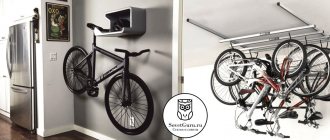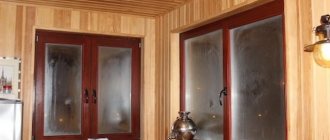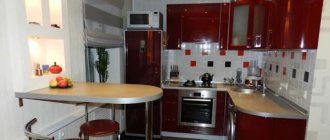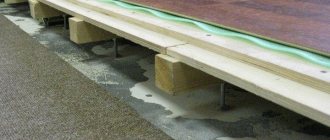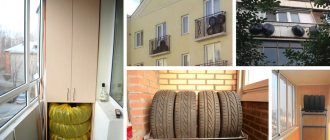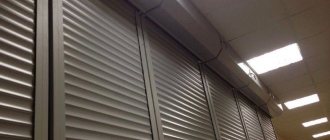What are books afraid of?
To maintain the presentable appearance of books, you need to know the factors that influence their damage.
Bacteria and mold spores living in dust harm not only human health, but also book publications. Due to dust, their pages become brittle and acquire an unpleasant brown color. To avoid this, do a wet cleaning every 2-3 days, and store books in shelves closed with glass doors or cover them.
Sun
The rays falling directly on the pages or covers cause significant damage to the condition of the books: they fade, lighten and age prematurely, so they must be stored in the shady part of the room.
Humidity
Monitor the humidity and temperature in the apartment. With high humidity in the room where books are stored, the sheets become deformed and mold appears. If it is lowered, the paper will dry out and break, so do not place publications near hot batteries and warming technicians. Ideally, the temperature should vary between 18–22 degrees and humidity 60–65%. If, despite following these rules, the pages still dry out, then you should think about purchasing an air humidifier.
A Guide for the Proud Home Library Owner
We read a lot from the screen. We buy or download electronic versions and install applications to save money, time and space in the apartment. But we still continue to love paper books: we follow new releases, admire the quality of the publication, and, on occasion, add to our home libraries. If you just yawned and discovered that you don’t have a library, you don’t have to read any further - you won’t be interested.
Well, I’ll tell you, my bookworm friend, how to store books correctly. So as not to turn the house into a dusty lair of a bibliophile and leave a solid intellectual legacy to the grandchildren.
Store books behind glass and you won't have to knock the dust out of them.
What are books afraid of?
The main enemies of any book are humidity, sun, dust and cramped spaces. Follow simple tips to defeat them.
Humidity
. If the room is too damp and hot, the paper will warp and even become moldy. Ideal climate: 18-22 degrees and up to 65 percent humidity. Most homes are like this, but you can buy a home weather station to make sure.
Do not place racks close to radiators. If the paper still dries out, it makes sense to think about a humidifier. This will be useful for you too.
If you notice mold or mildew, the books are damp. This sometimes happens when it’s already cold outside and the batteries haven’t been turned on yet. Place bags of moisture absorber: silica gel or coarse salt in your bookcases. You can also try anhydrous sodium hyposulfite. Look for it in photography stores: this stuff is used to make fixative for photographs.
Sun.
Under direct rays, paper fades and ages prematurely. Hide the library behind thick curtains or in the shady part of the apartment. And the bookshelves are behind glass.
Dust.
Bacteria and mold spores live in dust. Together with her, they move onto books and begin to eat glue and paper fibers. The book becomes shabby, brittle and has an unpleasant brown color. Glass perfectly protects books and your lungs from dust. The less dust that accumulates on your shelves, the cleaner the air you breathe.
Closeness.
Books also need air. Make sure that there is always at least a couple of millimeters between them. This way you won't tear the cover, spines or pages when you pick up the book or put it back.
There is no need to stuff large format magazines and albums on top. Leave 3 centimeters of space above the books. Stagnant air is a holiday for microorganisms. It is better to put them in piles on separate shelves. It is harmful to store more than ten copies in one pile - the lower ones will suffer from the weight of the upper ones and deteriorate.
Johnny did everything right. It is more useful to read at the table, keep your back straight.
How to care for books
Keep away from dust.
Regular dry cleaning with a vacuum cleaner or special brushes will help here. If there is a lot of dust, take a barely damp cloth.
Read carefully and put in place.
Careless handling of a book will ruin it faster than any mold. Books should not be opened sharply, bent in the opposite direction, or tried to be rolled into a tube. It is terribly harmful to bend corners or cover pages with pencils or other foreign objects. Take with dirty hands, smoke and eat while reading. This way you will kill the book much earlier than its time.
Arrange a medical examination.
Inspect the books from time to time and flip through the pages. If you see that the book is drying out or stains appear on the pages, think about it and re-read the tips. You are clearly doing something wrong.
If some of the books have spoiled or you are simply tired of them, do not throw them away, and especially do not stuff them into dark corners. Better give it to second-hand booksellers. And free up some space in the house, and you will do a good job. Maybe someone remembers this very volume from childhood and is looking for it everywhere.
You can store books in different ways. Not necessarily in closets.
Where to store books
Ideally, allocate a separate room or area for books. A complete home library is the dream of every book lover. The scale of the collection is immediately striking, the books are arranged according to the system, the shelves are labeled. But you can’t do this in a cramped living room or a bedroom crammed with furniture.
If meters allow, feel free to occupy the entire wall with shelving or bookcases. An option not for cramped apartments is to occupy a wall in the hallway or hallway. Make sure everything fits properly. Always touching the closet with your shoulder is annoying.
If there is no space for a library, separate your book supplies and store them in portions everywhere. Next to the computer or home workplace are books on profession, development, leadership and motivation. Give children's books to your child, let them stand next to textbooks and instill a love for the printed word.
Where to store books
How to store books in an apartment
In the modern world there are many ideas where book publications can be placed. To avoid dust getting into them, closed options are better. The most multifunctional and reliable is a bookcase with glass doors.
Buy a shelf if you don't have too many books. The stores have many different shapes, colors, sizes that will fit well into your interior.
Buy a small beautiful box, such as straw or covered with fabric, in which you will put your books.
Is it possible to store books in an unheated room?
It is not advisable to store books in an unheated room. As previously said, the ideal temperature of the rooms where the publications are located is 18-22 degrees. However, if there is no other storage place, the main thing is to prepare the books correctly: wrap them in airtight film and put them in a box.
Can books be stored on the balcony?
Do not store them on an unglazed balcony for the same reasons as in an unheated room, if there are more suitable rooms for this. If there is no other place, before taking the works to the balcony, pack them in several layers of cling film.
How to store books in the garage
Before you take your books to the garage, it's worth preparing in advance.
- Buy cardboard boxes.
- Sort the books so that in the future you can easily find the work you need, or immediately put them in a closet or rack according to certain categories.
- Wrap each book in several layers of film. If desired and necessary, write the name on top.
- Place them in a box so that they are not too crowded. Sign it if necessary.
- When you arrive in the garage, try to stack the boxes as high as possible.
How to store books at the dacha
The only thing you should take care of in advance before taking your book collection to the dacha is rats and mice, which can seriously damage it. Visit your home periodically and use the methods you know to get rid of small rodents. Otherwise, the books are prepared in exactly the same way as in the methods described above.
Rules for caring for the library
The main enemy of books is dust. It causes allergies and promotes the proliferation of insects that damage paper. How to care for your library to get rid of dust and other destructive factors:
- once every 2-3 days, wipe the floor in the room with a damp cloth, and wipe the book spines with a dry one;
- store literature behind glass - in cabinets or on shelves with glass doors;
- place the cover over the binding;
- Do not place heating appliances near the bookcase and shelves.
If the room is too hot in winter or summer, you can install air conditioning and regulate the humidity with a humidifier. Closed furniture will protect books from the interest of pets. Cats love to climb on high shelves. After a pet walks, scratches and torn spines with teeth marks appear on the covers. You should not leave volumes on a table, sofa or chair if your dog likes to chew things. It is better to put the literature away or hide it in a drawer on the bedside table or desk.
A book with intact, clean pages and binding is a joy to pick up again. Therefore, the new edition must be handled with care:
- do not read while eating or bathing;
- use a bookmark;
- Mark interesting places in the text with a pencil.
See also
How and how long can you store peeled potatoes at home?
Softcover literature requires more care than hardcover literature. Editions with flexible covers are placed on the shelf at a distance from each other so as not to wrinkle the corners.
Proper organization of book storage
Before placing your book collection in a storage location, make sure that it is located away from batteries and away from sunlight, which can cause significant damage to the paper.
Shelves
The most accessible and inexpensive option for owners of a small book collection. The downside is that the shelves are open, so books will need to be dusted frequently.
Shelving
Bookshelves are multifunctional, and thanks to the huge variety, you can find one that will fit into any apartment interior. The downside is the same openness of the shelves, where dust quickly accumulates.
Organizers for books
Book organizers do not take up much space in the room due to their compactness. They are suitable for placing the work you are reading at the moment. Organizers come in different types:
- boxes;
- stands;
- from textiles;
- in the form of baskets.
This storage device will be convenient for you because it is easy to move from one place to another.
Where to store books in a small apartment
A small home is a problem for storing your favorite book works, so designers surprise us with their new ideas every time.
Hanging shelves
If your small apartment has high ceilings, then an excellent option for compact storage of books would be shelves located in secluded corners of the apartment. If possible, you can make several book rows, but you should think in advance about how you will get them.
A recess in the wall will be one of the unusual ways to store book publications, but not all apartments have them. If you wish, you can make a niche yourself from plasterboard, but keep in mind that in this case it will take up some space in the apartment.
Bed
In stores you can find beds with shelves designed for books. They are not suitable for you if you have pets or children who could ruin the collection. In addition to shelves, all modern beds have “secret” drawers where a sufficient number of books can fit.
Windowsill
A window sill can easily replace a bookshelf. Remember that this method can harm the condition of the books, so before you place them there, darken with something the area where the publications will be located.
Armchair
No, you shouldn't stack your books on your chair like you do with your clothes. In furniture stores you can buy a library chair that can hold a sufficient number of books. If possible, you can do it yourself.
Storage tips for a small apartment
A large library cannot be placed in a one-room apartment. Therefore, some books will have to be packed in cellophane and boxes and taken to the loggia or attic. When storing in the attic, boxes are not placed on the floor so that rats and insects do not become interested in the literature. It is better to place them on top of other boxes in a dry place.
It is easier to place books for constant reading using shelves, special furniture and non-standard design solutions. These are usually open storage areas, so you will have to spend more time cleaning.
Hanging shelves
Shelves made of wood and metal are placed above the desk, next to the sofa, and bed. A variety of shapes and sizes allows them to fit harmoniously into the interior. This is a convenient way to place a small number of books in a small space and emphasize the style of the interior. Small shelves are also fixed to window slopes.
Niche
In standard apartment layouts, niches are rare. A recess as a place to store books is provided during the selection of home design, and then built from plasterboard. A niche will not help save space, but it will look more original than a rack or shelves.
Bed
Special models with built-in shelves at the bottom are convenient for those who like to read before bed. An organizer bed will replace a bulky bookcase.
Windowsill
Books can be placed compactly on shelves under the windowsill, but only if there is no central heating radiator nearby. A window in the shaded part of the apartment is suitable for placing literature. The method is suitable for storing books in a children's room.
Armchair
An original solution that will save space in a one-room apartment is a square-shaped library chair. It consists of shelves built into the back, bottom and around the seat.
How to properly care for books
Follow a number of rules to keep your books in perfect condition.
Read carefully
- while flipping, do not make sudden movements that could tear the page;
- do not read in the bath, otherwise the book may “drown”;
- Avoid reading while eating if you don't want to mess up or accidentally spill your tea.
Use bookmarks
Do not use foreign objects such as pencils or pens as bookmarks, and do not bend the corners of pages. Agree, finding a piece of paper in the form of a bookmark will not be difficult; moreover, it will not damage your book.
Use covers
Some book publishers produce their products with a dust jacket that fits over the binding, which is a great advantage that will prevent damage to the paper. Put covers on the books you are currently reading.
Dust removal
The first step to take when preparing books for storage is to clean them. This goes double for vintage books, hardbacks, and special editions. A dry woolen cloth is ideal for wiping off any dust that may later damage the pages during storage. It is also recommended to remove any bookmarks, notes, paper clips or other items that may be between the pages of the book. The book may wrinkle or absorb acids released by objects left between the pages.
How to clean books?
If an unpleasant incident occurs, you accidentally left marks on the book that ruined the condition of the pages, don’t worry, there is a way to fix everything.
How to remove dirt from pages?
They work well with greasy marks:
- crushed chalk;
- ironing pages through waterproof paper.
To help get rid of ink:
- a mixture of citric acid and juice;
- a mixture of oxalic acid and triple cologne.
Traces from dirty fingers or pencils can be easily dealt with using white bread crumbs, which need to be rubbed over the damaged areas.
Book covers can be washed with water or soapy water (be careful, this can completely ruin the book). Professionals use formaldehyde to clean mold.
How to properly store books in a small apartment
In the 21st century, dozens of entertainments have appeared, which for many replace books. However, reading is a budget-friendly and enjoyable way to relax. Over time, there are no fewer book lovers. They claim that they feel like a member of a secret community that has its own special language of communication. For many people, books accompany them throughout their lives. In childhood, books are placed in small cabinets, and over the years there are more and more of them, and there is less and less space for storing them. If you're wondering how to store books in a small apartment, then keep reading.
A true book lover who buys paper copies may have his entire house filled with books. Products tend to jump out under your feet, stand in tight groups, and constantly creak. Are you afraid to open cabinets because a heavy book might accidentally fall out and not necessarily fall next to you and not on your head? What to do if all the books are your favorite, but you also want a little free space? This picture is familiar to you and you are a lover of ordinary books in the digital era, then let's figure it out. We'll talk about how to store books at home and not turn your apartment into a complete library.
Rack
This is the most practical option for storing paper products. A multifunctional piece of furniture that can be used depending on the type of home. If you have a studio apartment, then it is better to put a shelf up to the ceiling: this will give you plenty of space for books, and the space will be divided into zones.
When the house has a typical layout, it is better to place the shelving in a corner where little else is usually placed. And if you don’t have space in your apartment and you’re wondering whether it’s possible to store books on the balcony in winter, then we advise you to carefully weigh the pros and cons. After all, to properly store books, you need a warm temperature of up to 22-24 C. You can build a small table and place it in the kitchen.
If most books are of a “pocket” format, then it is convenient to put them in baskets, and then put them on the shelves. As a result, it will take up little space, and you can fit a lot more books.
What furniture is suitable
Furniture is chosen depending on the number of books and the size of the room. There are four options for storing literature:
- bookcase with glazed or open shelves;
- sideboard, wall with open compartments or doors;
- open or glazed hanging bookshelves;
- open shelving.
Closed furniture is necessary to accommodate an extensive library. Behind the glass, the immortal works of the classics will be protected from dust. It will be enough to wipe them once every 2 weeks with a dry cloth.
Hanging shelves are an option for saving space. They can be placed at any height and in any room.
Open shelves and racks are suitable for storing a small collection or specialized literature. Directories, encyclopedias and manuals that are constantly required in work are easy to find on the rack, especially if you sort them alphabetically and by topic. In a small library placed on open furniture, you can quickly put things in order.
See also
How and at what temperature to store pickles in an apartment, timing
Hanging shelves
A worthy alternative for those who have only a bed, table and chairs or high ceilings as furniture. Shelves can be of a laconic style so that they are not too noticeable. However, as a storage it will be what you need. Wondering how to store books in an unheated room? Then hanging shelves will definitely help you out, because the temperature above is always warmer.
If you have high ceilings, then it is convenient to make 2-3 rows. But before that, think about how you will take books from the top row. Buy a stepladder or put the books you have already read at the very top.
When the apartment is very small and still filled with other things, then this is the only way to store books. However, it is worth noting that creating a niche on your own is difficult. It’s good if the room already has options for improvisation.
You can build a niche from plasterboard, but then you will take up additional space that you would like to keep free. Try to go beyond and look for a better place. It may turn out to be the most unexpected, where it will occupy the minimum area.
Use boxes
- Place books in small, sturdy boxes that make them easy to remove and easy to move around if you need to find a particular book in the future. Plastic bags can also be used, but make sure they are made from polyethylene or polypropylene before using, as these materials are much more liquid-resistant than PVC and other less stable types of plastic.
- When choosing containers for books, do not forget that even a small number of books can easily turn into a rather heavy box. Small, lightweight boxes will save you a lot of time and hassle during a long trip.
- Do not pack books with other items, especially fragile ones such as glass, as books may roll around inside the box while moving. This way, you can keep both your books and your fragile items safe and sound.
- Try to pack books of the same size together.
- Place books horizontally and fill any remaining space between them with sheets of anti-rust paper or packing material.
- Do not store books vertically as this may damage the spine.
We know that your books and valuables are special to you. If you have any additional questions about the book storage services we provide, simply contact our manager. Don't forget to check our blog often for more storage tips and tricks.
Source: vashstorag.ru
Bed
If you are wondering how to store books if there are no shelves, when there is very little space, then this is a great option. After all, we all like to read something before bed, so why not put your favorite books closer? A bed or sofa can hold a lot more things than we think.
Once you have chosen a bed for storage, make the most of the space. You can put secret drawers in the head area and place works there that you rarely access. Or maybe books with covers you don't want to show off.
Armchair
Let's imagine that there is absolutely no room in the house for additional racks, niches and shelves. Well, this is a very small home where no shelving can fit, a lot of things are already stored under the sofa, and a narrow window sill is not even suitable for a cat. What can we say about sitting there with tea and a book... Then pay attention to the special library chair.
This interesting piece of furniture places books around it. There are small shelves or “windows” installed around the entire circumference, where 2-3 books can easily fit. A significant advantage is not only a book storage, but also an impromptu wardrobe and a place for the cat to rest. It saves space perfectly and gives the apartment a special look.
Unusual ideas
Books can be stored without shelves or cabinets - in organizers. Devices help save space and sort publications by genre. The following are used as organizers:
- wooden boxes;
- carton boxes;
- wicker baskets;
- plastic containers;
- bags for storing clothes with zip fasteners;
- suitcases.
Organizers are placed under the bed, stairs, on the closet and decorated independently: drawers are decorated in a vintage style, covered with fabric, and boxes are decorated using scrapbooking techniques.
